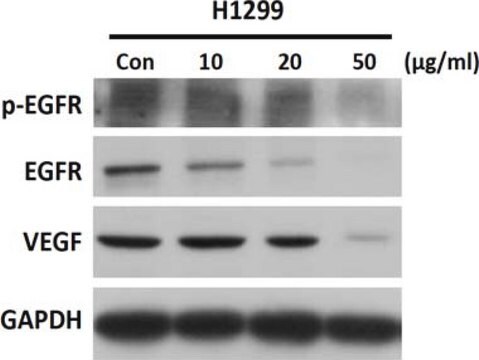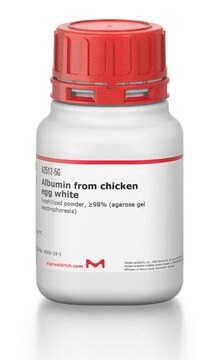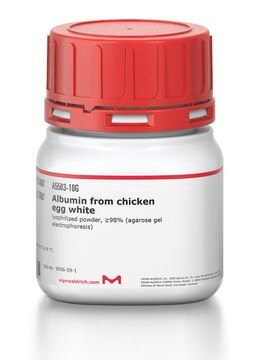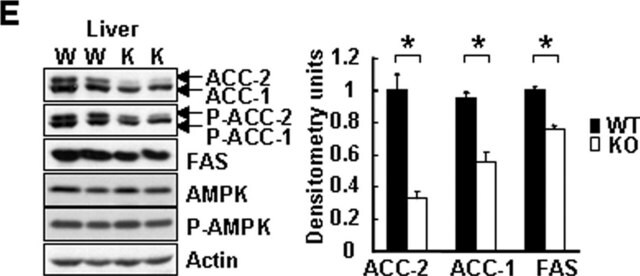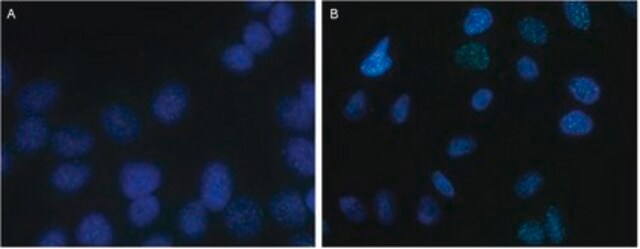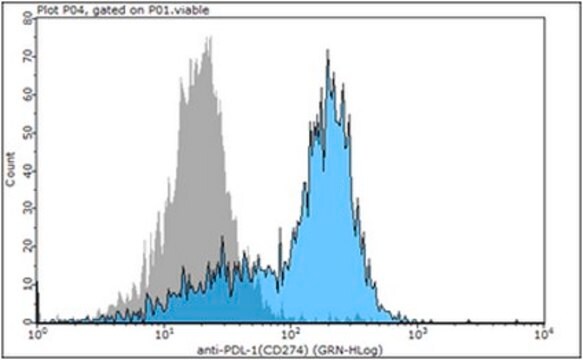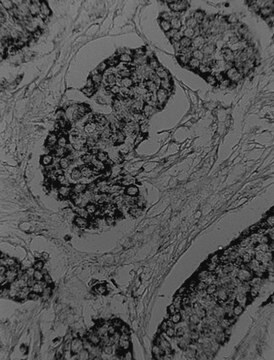General description
ADP-ribosyl cyclase/cyclic ADP-ribose hydrolase 1 (UniProt: P28907; also known as EC:3.2.2.6, 2′-phospho-ADP-ribosyl cyclase, 2′-phospho-ADP-ribosyl cyclase/2′-phospho-cyclic-ADP-ribose transferase, 2′-phospho-cyclic-ADP-ribose transferase, ADP-ribosyl cyclase 1, ADPRC 1, Cyclic ADP-ribose hydrolase 1, cADPr hydrolase 1, T10, CD38) is encoded by the CD38 gene (Gene ID: 952) in human. CD38, a member of the ADP-ribosyl cyclase family, is a single-pass type II membrane glycoprotein that contains a short cytoplasmic domain (aa 1-21), a transmembrane domain (aa 22-42), and a long extracellular domain (aa 43-300). It is expressed in high levels in pancreas, liver, kidney, brain, and in malignant lymphoma and neuroblastoma. It plays a role in cell adhesion, migration, and signal transduction. It is preferentially expressed at both early and late stages of the B and T-cell maturation and is detected on erythroid and myeloid progenitors in bone marrow, where the level of surface expression was shown to decrease during differentiation of blast-forming unit E to colony-forming unit E. CD38 is a bifunctional enzyme with both ADP-ribosyl cyclase and cADPR hydrolase activities. Its catalytic activity resides in the extracellular domain that can both generate and degrade cyclic-ADP ribose and can catalyze the base-exchange reaction between NADP+ and nicotinic acid to produce Nicotinic acid adenine dinucleotide phosphate (NAADP+). CD38 also moonlights as a receptor in cells of the immune system where it serves as a lymphocyte receptor and is a considered to be a prognostic marker for survival with B-cell chronic lymphoblastic leukemia.
Specificity
Clone 2H3-2 is a mouse monoclonal antibody that detects CD38 (ADP-ribosyl cyclase/cyclic ADP-ribose hydrolase 1).
Immunogen
Recombinant fragment corresponding to the extracellular domain of Human CD38.
Application
Quality Control Testing
Evaluated by Flow Cytometry in Raji cells.
Flow Cytometry Analysis: 1 μg of this antibody detected CD38 in one million Raji cells.
This mouse monoclonal Anti-CD38, clone 2H3-2, Cat. No. MABF238-I is tested for use in Flow Cytometry, for the detection of ADP-ribosyl cyclase/cyclic ADP-ribose hydrolase 1.
Physical form
Purified mouse monoclonal antibody IgM in PBS with 0.05% sodium azide.
Storage and Stability
Recommend storage at +2°C to +8°C. For long term storage antibodies can be kept at -20°C. Avoid repeated freeze-thaws.
Other Notes
Concentration: Please refer to the Certificate of Analysis for the lot-specific concentration.
Disclaimer
Unless otherwise stated in our catalog or other company documentation accompanying the product(s), our products are intended for research use only and are not to be used for any other purpose, which includes but is not limited to, unauthorized commercial uses, in vitro diagnostic uses, ex vivo or in vivo therapeutic uses or any type of consumption or application to humans or animals.
